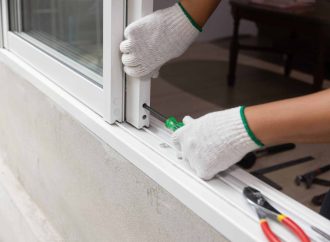If you are in the market to purchase a new home, you probably have a laundry list of items that you sift through on a weekly or even daily basis. The home buying process can be time-consuming, filled with paperwork, and is bursting with emotional highs and lows. Once you find a home that meets
If you are in the market to purchase a new home, you probably have a laundry list of items that you sift through on a weekly or even daily basis. The home buying process can be time-consuming, filled with paperwork, and is bursting with emotional highs and lows. Once you find a home that meets all your criteria and is in your price range you want to make sure the property doesn’t have any major issues, by bringing in a professional home inspector. If you are looking to sell your home, you know that chances are a potential buyer will ask for a home inspection before agreeing to the purchase. Both parties have a vested interest in the outcome of the inspection, so no matter if you are the seller or the buyer, it is good to know what are the most common home inspection problems found. As the seller, you can look into these before putting your home on the market, as a buyer you can look for these issues while completing your open-house walkthrough. If you find any of these issues up front, it may weigh on your decision, depending on the size of the issue.
The home inspector will check both the outside and the inside of your home, they will go down to the basement and even on to the roof looking for any potential issues.
Broken or missing shingles is an issue that is come across often, as a homeowner or a potential buyer it is tough for you to spot as you don’t go up on the roof often or at all. Missing or damaged flashing and gutters is another issue potential spotted by the inspector when on the roof. Missing or damaged shingles, flashing, or gutters should be looked at seriously as they can lead to potential water damage.
Spending additional time inspecting the electrical components is important for most inspectors, as faulty wiring can lead to a devastating house fire. An inspector will look at the quality of work and note poorly completed/installed items. If they are able to find multiple issues at are not standard or up to code, that is an indication that a non-professional completed the electrical work. For older homes, they will also look to see if they can find evidence if knob and tube wiring is still active in the home or if it has been replaced.
Damaged or inoperable windows are commonly found during the inspection. If the windows do not open or close properly or get stuck this can pose a safety risk. Are the windows original or have a window replacement bee completed recently will be noted in the report? Most windows have a manufacturer date stamp located between the window panes, this can be used as an indicator if the windows will need to be replaced soon for any potential home buyer. Windows typically have a 15-25 year life expectancy.
There is a wide range of potential plumbing issues that may be identified. Anything from as simple as a leaky toilet to more severe drainage issues can be noted. If more serious issues are found, this can lead to potential water damage in the future.
Water damage and damp areas are always a cause for concern and are something a home inspector will be on the lookout for. If you are selling your home and there are signs of previous water damage, it is always best to ensure the source of the damage is found and fixed and any visible damage is removed and repaired.
Having a professional home inspector look over any home you are considering purchasing is an important step in ensuring your new home is your dream home instead of a nightmare. Issues will always be found by an inspector, but understanding what those issues are will help you decide based on how comfortable you are taking on those issues.


















Leave a Comment
You must be logged in to post a comment.